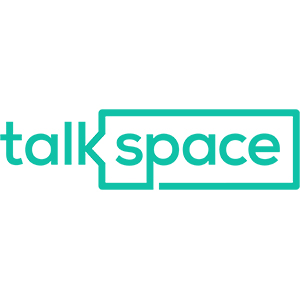7 Best Online Therapy: 2024 Top Online Therapy Programs
All articles are produced independently. When you click our links for purchasing products, we earn an affiliate commission. Learn more about how we earn revenue by reading our advertise disclaimer.

BetterHelp
- Therapy sessions by phone or video
- Switch therapists easily
- Group, marriage, and family therapists available
20% Off First Month: healthcanal

Calmerry
- Live video sessions
- Less expensive
- Various therapy choices
40% Off Coupon: HEALTHCANAL

Talkspace
- Messaging servicesOffers psychiatrists to prescribe medication
- Video, text, and phone sessions
$85 off your first month: HEALTHCANAL85
Sitting in an enclosed space with another person isn’t as attractive as it used to be. At the same time, more people are seeking out the sort of help a therapist can provide.
The solution to that conundrum is teletherapy, taking therapy sessions online through texting, phone calls, and video calls. People have been using teleconferencing tools for years, all the while mocking the more ridiculous or frustrating aspects of internet communication.
Despite that, many people have found teletherapy a meaningful and useful form of counseling. There are a few downsides, but you may prefer its convenience and comfort.
Best Online Therapy On The Market In (April. 2024)
- Betterhelp – Editor’s Choice
- Calmerry – Best Full-Service Therapy
- Talkspace – Best for Medication Needs
- Online-therapy.com
- Self-therapy Journey – Best Self-Help Tool
- Ginger – Best for Full Companies
- Amwell– Best Overall Health Service
How To Choose The Best Online Counseling Programs?
There are some notes you should notice when it comes to online counseling, including:
- Does it just match you to a therapist, or is it a full-service platform?
- Cost
- Ease of use and convenience
- Types of communication available, ie. texting, phone calls, or video calls
- Ease of Scheduling appointment
- Therapist availability
- Offers specific specialties
Top 7 Best Online Therapy in 2024
BetterHelp

20% Off First Month: healthcanal
Betterhelp offers pretty much the same experience as in-person therapy, but without having to leave your home. Match with a counselor based on gender, faith, specialty, and more.
- In-app messaging
- Therapy sessions by phone or video
- Licensed Therapists
- Switch therapists easily
- Group, marriage, and family therapists are available
- Pricey
Betterhelp offers an easy way to work with an online therapist. As with some of the other full-services online therapy services, you can text with licensed, professional counselors as much as you want. Phone and video therapy sessions can be scheduled when it’s convenient for you.
Betterhelp also offers a range of mental health services. Your therapist can provide you with worksheets and handouts. Group therapy, teen counseling, and other mental health issues can also be addressed.
Calmerry

40% Off Coupon: HEALTHCANAL
Calmerry offers most of the services you’re used to, like texting and schedule video sessions. It has a stripped-down approach to go with a cheaper price.
- Licensed mental health professionals
- Individual, couples counseling, and family therapy
- Live video sessions
- Resources available online
- Less expensive
- Some types of therapy require you to call to start
Like a lot of similar services, Calmerry works through either the website or a smartphone app. After signing up through either portal, you are matched with a counselor who fits your needs. At that point, you’ll find a space for text messaging, as well as being able to schedule live sessions over video.
While you still get all the same benefits, including working with a licensed mental health professional, Calmerry still manages to charge a bit lower price. It’s a slightly less expensive alternative to more well-known apps like Betterhelp or Talkspace.
Talkspace

$85 off your first month: HEALTHCANAL85
There are a few services that seem to be setting the standard for the rest, in terms of options and availability. Talkspace is one of those trend-setting online therapy platforms.
- Individual counseling, teen counseling, and family therapists are available
- Offers psychiatrists to prescribe medication
- Video, text, and phone sessions
- May work with your health insurance
- Costly
While online therapy is booming, there are a few that are setting the standard for teletherapy going forward. Talkspace is one of those services, offering just about the full range of options.
Starting off, you’ll be assigned a therapist that meets your needs, but you can change at any time. You can reach them at any time by text and schedule video or phone appointments.
You do pay a bit more, but Talkspace is a rare therapy service that may work with your insurance provider. Note that there are a couple of different subscription levels with Talkspace. Not all of the features are available at every subscription level.
Online-Therapy.com

20% Off Coupon: healthcanal
Not only does online-therapy.com offer a full range of services, but it also offers guided activities. If you want to take concrete steps to improve your life, this service might be a good choice.
- Structured with worksheets and activities
- Once weekly appointments with a therapist
- Review past feedback at any time
- Expensive
- Not available everywhere
Sometimes it is tough to measure progress in therapy, as changes tend to be gradual and diffuse throughout your life. As a result, motivation can sometimes fade over time.
Online-therapy.com is a full-service teletherapy platform. That means it offers texting communication, as well as regular appointments with a counselor over phone or video call. Something online-therapy.com adds to that standard recipe is a structured path.
As you work with your therapist, you work on modules and plan activities, always giving you a specific task or focus. Unlike a strict, traditional therapy approach, you can always see how far you’ve come.
Note that there is the very similarly named onlinetherapy.com. The dash makes a difference.
Self-Therapy Journey

Self-Therapy Journey is well named, as it focuses on a self-help style of therapy. It provides guidance for identifying and addressing issues but doesn’t include counseling.
- Self-guided therapy exercises
- Designed by a therapist
- Designed to help with daily living
- Lower cost
- Doesn’t include therapy sessions
- No counselor at all
- Some aspects cost more
The meeting of therapy and technology has given rise to a range of different approaches. Most teletherapy offerings are aimed at bringing the traditional therapy experience online. Self Therapy Journey takes a different approach. It provides some online, interactive tools that can help you address your problems on your own.
Like many self-help programs, Self Therapy Journey is intended to help with everyday mental health issues. People in need of more support might want to look elsewhere.
Ginger

Ginger.com seems to be aimed at providing mental health services for employers and their employees. Offered are texting and regular sessions by video.
- Licensed therapists available for regular sessions
- Available online or on a smartphone
- Online resources for skill-building
- Supported by a team of licensed mental health professionals
- Aimed at working primarily with employers
Ginger can compete with either Talkspace or Betterhelp in terms of features. Coaches are available by text whenever you have concerns. Regular video sessions are also part of the package, as several different mental health professionals collaborate for your care.
Ginger may work with your insurance. It seems like the service is aimed primarily at working with employers to add mental health care to their benefits.
Amwell

This is another of the online therapy platforms that want to work with employers, though individuals can also sign up. On-demand therapy is great for emotional support, but maybe not serious mental health concerns.
- Counselors available for regular sessions
- Some of the cost may be covered by insurance
- Cost can vary depending on the counselor
- No text messaging
- May not always work with the same counselor
Amwell focuses on working with employers, and providing mental health and online therapy services to their employees. The same services are also available to individual subscribers. Mental health is just one of the areas that Amwell can help with, including access to several other types of health professionals.
You may be able to cover part of the cost with health insurance. The cost of working with various counselors can vary, so you can find a therapist that fits your budget.
Benefits of Online Therapy
For many people suffering from mental health concerns, never leaving the house again sounds great. That’s not a great reason to switch to an online therapy platform, but there are plenty of great reasons to do so. Not everyone will find it works well for them and for those people, in-person treatment may always be preferable.
If you’re already used to in-person sessions, switching to an online therapy platform may take some adjustment. However, many people find they much prefer online counseling[1].
Safe Space
There are just a few things required for successful mental health counseling, but at the top of the list is a feeling of safety. Sharing emotions, fears, and insecurities is scary for most of us, perhaps even more so for those of us who struggle with mental health.
However, sharing those sorts of personal, intimate details is a key aspect of many types of therapy. The more comfortable you are, the more able you are to overcome hesitancy and fear that are obstacles in therapy.
Where do you feel safer or more comfortable than your own home? You can even have your appointment in your own room in your PJs, or however else you want. Many people find that makes the process of counseling much easier.
Better Than In Person
There can be a couple of downsides to online therapy. Some people find it harder to make a connection to their therapist online. The experience of talking to a little face on a screen, or even just texting a username, creates an obstacle for emotional support.
It also can make things more difficult for the therapist, as they have a harder time reading the nuances of body language that is a big part of their job.
Despite both of those limitations, many people still find the experience of using online therapy platforms preferable. There are probably a few reasons for that. One big reason is that it removes a lot of the off-putting aspects of traditional counseling.
Of course, you no longer have to go to a therapist’s office. Instead, they have to come to your turf. Offices can be intimidating places because it’s a more formal environment. For some people, that environment meets their needs. For others, it puts another obstacle in the way of seeking help.
It is also much easier to make appointments with an online therapy platform. Rather than calling and trying to find a time that fits, most services just have a calendar from which you can pick a date and time.
Convenient
It’s always nice when something is a little easier to use or get to. When you’re struggling with mental health issues, even a small bump in convenience makes a tremendous difference. It can often be the difference between seeking out help and struggling alone.
As a result, the added convenience of online therapy really can make a profound difference. Many services will offer some degree of communication at any time, so you can reach out when you’re struggling. On days when you’re struggling to get out of the house, or even out of bed, you can still make it to your appointment on time to address your mental health concerns.
Additionally, after your appointment, there’s no stressful drive home. You can stay where you are and continue to care for yourself in a low-stress environment.
Just as Effective
In many contexts, even when facing even quite serious mental health challenges, working with online therapists can be just as effective as face-to-face therapy[2]. There are a few adjustments that have to be made.
For example, some people found that therapists, as well as clients, have to get used to it. Not only can video or phone therapy make some things more difficult, but video chat can also change the whole dynamic of how therapy works. They may need to work harder to connect with clients. They may also need to use online handouts.
With all of those adjustments made, however, therapy is therapy. Even soldiers with PTSD have found that online therapy is an effective way of dealing with their issues. They even reported that while they did find it was harder to connect to their therapist, that didn’t impact the effectiveness of the therapy.
How To Find The Best Online Therapy Sites
There are some things that you can skimp a little on quality and it’s not a big deal. Healthcare, and particularly mental health care, probably isn’t one of those things. Finding a quality service that can connect you to a helpful counselor can be very important.
There are a number of important aspects to consider when considering an online therapy service. Perhaps most important is being able to find a therapist you are happy to work with and can help.
That’s tough to figure out before you sign up, however, so you have to start with some other considerations.
Licensing and certification
Every mental health professional you work with should be licensed and certified, which may go without saying. Licensing and certification standards and requirements are specific to your state, in most cases. Luckily, the majority of online therapy services can figure that out for you, only listing therapists that are in your area.
However, it may be worth double-checking. The certifications that a licensed therapist holds should be listed in their profile. Examples of mental health counselor certifications include:
- Licensed Clinical Social workers (LCSW)
- Addiction or recovery specialist
- Licensed Professional Counselor (LPC)
- Psychology (masters or doctorate)
- Licensed Mental Health Counselor (LMHC)
- Nationally Certified Counselor
There are also a variety of other certifications for specific specialties.
Cost
In many ways, mental healthcare is as important as your physical health, so you can’t really go without it. Therapy is generally fairly expensive, so any way to save a penny is nice. You might expect an online service to be even more expensive than in-person therapy, as you’re getting a bunch more bells and whistles with those services.
In reality, most of these services are comparable in cost to in-person therapy. Even when factoring in the potential for insurance to pay for part of traditional therapy, online therapy can be more affordable.
As with anything else, if you can pay more you’ll probably be able to access a higher level of care. Even some of the more complete services like BetterHelp and Talkspace are affordable for most people.
Specialty Available
Not all therapists are equipped to deal with every problem. Like a medical doctor, most therapists will focus on a few specific types of illnesses. It might be a specialty in a type of therapy, like dialectical behavioral therapy. That is a type of therapy that focuses on mindfulness and tolerating distress, with a focus on improving interpersonal interactions.
Other specialties might be more practical, for example, career counseling. Teen counseling, family and couples counseling, and group therapy are all methods of therapy that can be useful for some difficulties. Group counseling, for example, has been found to be particularly effective in dealing with post-traumatic stress disorder.
Other types of specialties focus on specific types of mental challenges and illnesses. Usually, those are more serious conditions. Examples include things like:
- Eating Disorders
- Generalized anxiety disorder (GAD)
- Panic Disorder
- Major Depressive Disorder
- Persistent depressive disorder
- Post-traumatic stress disorder
- Addiction recovery
There are as many different specialties as there are mental illnesses. On most services, you can find a specialist to help with the majority of common mental challenges.
Messaging vs. Regular Appointments
We’ve talked a little bit about the fact that online therapy can make things a little more difficult or awkward. Most people are more used to working over video chat than we were a year ago, but it still can be less than ideal.
While it can be difficult, the communication gap can usually be filled by using the other methods of communication made available. A big draw for online therapy is the ability to connect wherever you happen to be. Many services supplement that by allowing you to reach out for help whenever you need it.
That sort of on-demand help can take a couple of different forms. The most common may be allowing text messaging. It can be a very useful feature. However, you won’t necessarily hear back from your counselor right away. Many have quite reasonable policies about limiting times when they’ll reply.
Some services do offer truly on-demand counseling, with life coaches or other specialists available for an appointment on the spot. With those options, you’ll rarely have the option of working with the same therapist consistently.
It’s important to find a mix of communication methods that work best for you.
Final Thought
It may be due to a rise in mental illness[4], or simply that more people are comfortable admitting they need help. Whatever the reason, it seems likely that teletherapy is here to stay. Technology definitely doesn’t make everything better.
One thing technology can do really well is bring people together in new ways. This is certainly happening with teletherapy. There are more and more services available, all of which can connect people in need to those that can help them.
Frequently Asked Questions
There may be no one teletherapy service that will work well for everyone. If you’re looking for the best mix of features, cost, and access, online-therapy.com may be the best option. You are matched with a therapist and begin communicating with them immediately. Text messaging is available, as is video chat sessions with your therapists.
Both of these services offer a very similar set of features and services. It can be difficult to choose between them, as a result. However, Betterhelp may be a better choice, simply because of cost.
All of the features Betterhelp offers come with the basic subscription to the service. While it can be costly and it probably won’t work with your health insurance, you know exactly what you’re getting.
Talkspace has several different subscription levels and not every feature is available at every subscription level.
While online therapy does face some challenges, it certainly is an effective way to seek therapy. Remember that, while you’re communicating over video chat, you are still talking with a fully qualified therapist. They have all the learning and experience required to help people deal with mental health challenges.
+ 4 sources
Health Canal avoids using tertiary references. We have strict sourcing guidelines and rely on peer-reviewed studies, academic researches from medical associations and institutions. To ensure the accuracy of articles in Health Canal, you can read more about the editorial process here
- Maier, C.A., Riger, D. and Morgan‐Sowada, H. (2021). “It’s splendid once you grow into it:” Client experiences of relational teletherapy in the era of COVID‐19. Journal of Marital and Family Therapy, [online] 47(2), pp.304–319. Available at: https://onlinelibrary.wiley.com/doi/full/10.1111/jmft.12508.
- Turgoose, D., Ashwick, R. and Murphy, D. (2017). Systematic review of lessons learned from delivering tele-therapy to veterans with post-traumatic stress disorder. Journal of Telemedicine and Telecare, [online] 24(9), pp.575–585. Available at: https://journals.sagepub.com/doi/abs/10.1177/1357633X17730443.
- Counseling Today. (2020). Making the “new” normal: Five tips for providing teletherapy – Counseling Today. [online] Available at: https://ct.counseling.org/2020/09/making-the-new-normal-five-tips-for-providing-teletherapy/.
- Häfner, H. (1985). Are Mental Disorders Increasing over Time? Psychopathology, [online] 18(2-3), pp.66–81. Available at: https://pubmed.ncbi.nlm.nih.gov/4059492/.



